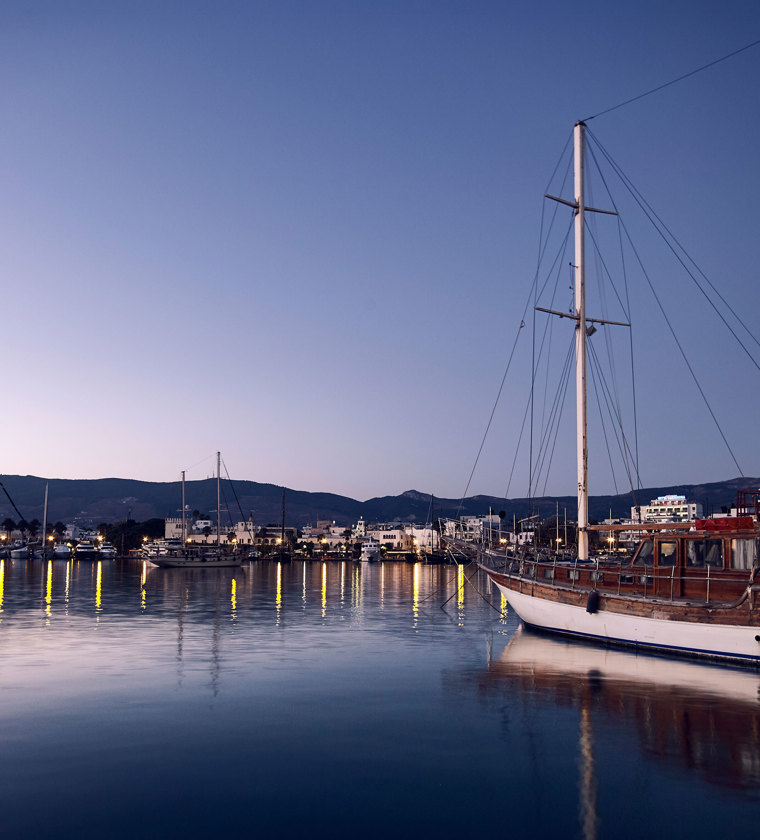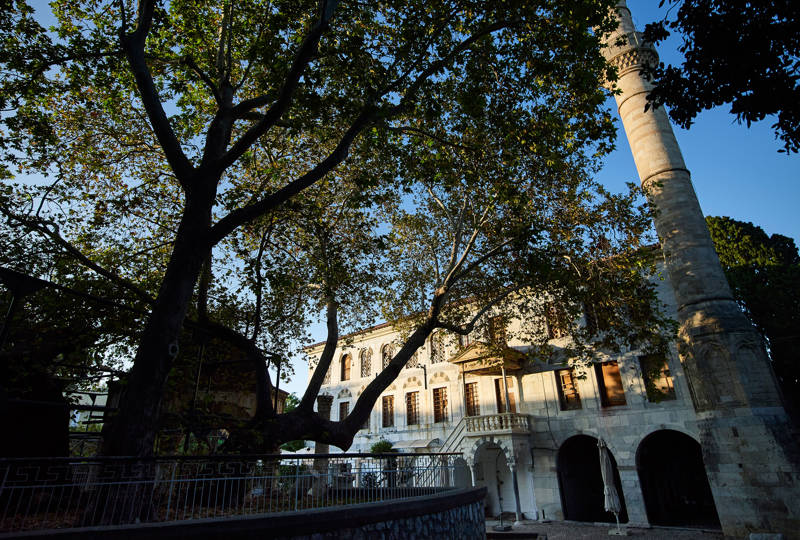The island of Kos is the third largest island of the Dodecanese complex in the Aegean Sea. It is the birthplace of Hippocrates, the father of modern medicine, and it has a rich history that dates back millennia to prehistoric times. The heritage of Kos is evident even as you walk around the city centre; ruins of ancient temples lying next to medieval fortresses, natural parks nestled amongst modern buildings.
Famed for its endless beaches, spectacular sunsets, quaint traditional villages and great Greek hospitality all blended together in a mix that has remained unchanged for centuries.
All around Kos Island you will find intriguing sites that showcase the island’s rich history and heritage. The centre of Kos town is an in-situ archaeological site, with ancient Hellenistic and roman antiquities scattered all around the city. The Archaeological Museum of Kos recently reopened its doors with an impressive exhibition of artefacts, sculptures and mosaics that had been excavated and discovered from all over the island. The Asklipeion of Kos, the ancient sanctuary where Hippocrates taught and practiced medicine is on the hill overlooking the town, offering, a look back into ancient Koan lives, with panoramic views of the island it’s a popular tourist attraction. Also worth visiting are the Casa Romana, the Roman Odeon, and the Agios Stefanos Vasilikas, a step back in time.
There are an abundance of activities on the island of Kos, from adrenaline pumping water-sports such as water-skiing, jet-ski hire, windsurfing, kite surfing, parasailing, scuba-diving and boat cruises around the island.
The island’s hinterland offers a rich selection of natural parks perfect for hiking and getting in touch with the islands indigenous fauna and flora visits to the Zia Natural Park or the Psalidi Wildlife sanctuary are a must.
At Pelagos Suites Hotel + Spa we make sure you arrive in style and leave in luxury. Meet your driver at Kos International Airport or Kos port and relax on the journey to your destination.
Contact us at info@pelagoshotel.com


The rich history of Kos is evident in every step you take; from the ancient temples and the sanatoria dedicated to Asklipeios, to Roman mansions and medieval castles. Many civilisations left their mark on this beautiful island, and this mix of cultures has led to an eclectic blend and imbued a unique island spirit, the true beating heart of the island.
Traditional villages worth a visit are Antimacheia, for its medieval castle and its traditional ambiance, Matihari for its gorgeous beach and water park, Kefalos, for the true essence of Kos and its amazing monuments, and for those who like to party Kardamena for its vivid nightlife. Inland, Pyli, Zia and Asomatos are more traditional and off the beaten path with traditional island architecture, mesmerising views and delightful tavernas with home-made delicacies and traditional Koan cuisine.
The entire coastline of Kos is comprised by miles after miles of endless beaches; some sandy, other pebbled; calm and tranquil or windswept and rough. The most unusual one is definitely the beach of Therma, where a hot water spring sprouts out of the foot of a huge rock and forms a thermal “spa pool” right at the edge of the beach. The finest beaches for swimming, sunbathing and water sports are the beaches of Lambi, Paradise beach, Kefalos, Tigkaki and Psalidi, whereas if you are into extreme sports such as wind surfing, kite surfing or wakeboarding, Mastichari and Marmari, whereas the most picture-perfect beach is without a doubt Agios Stefanos, near Kefalos, with a small island dominating the cove.
Like every Greek island, Kos has its own delicious specialties that are worth trying. Many restaurants and tavernas proudly showcase the ‘tastes of Kos’ with local products ‘made with love’ by the islanders. The love they have for their land, the traditions and the produce can be felt in every bite. Don’t leave Kos without trying Posa, made from goat’s cheese then fermented in red wine or the unique syrup-based spoon sweets of tomato, eggplant and fig, a signature dessert of the Island.